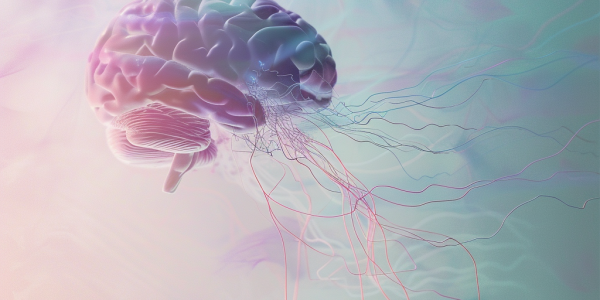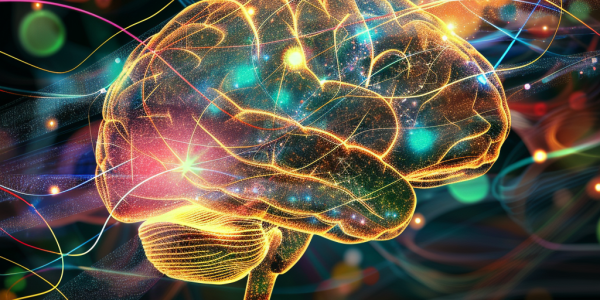Understanding and Managing Seasonal Affective Disorder as Winter Approaches
As winter approaches, many individuals face seasonal affective disorder (SAD), a condition that brings feelings of depression during the colder months. Germaine Pataki, a Saskatoon resident, shares her journey coping with SAD through yoga, walking, and support groups. Key strategies for managing SAD include light therapy, physical activity, and maintaining social connections. Understanding SAD’s symptoms and treatment options can empower individuals to combat winter blues and enhance emotional well-being.
New Research Identifies Key Cell Types in Amygdala Linked to Anxiety Disorders
Recent research from UC Davis reveals new insights into the amygdala’s role in anxiety and fear processing. Identifying specific ‘gatekeeper’ cell types within the amygdala, this study highlights potential targets for innovative treatments of anxiety disorders. Published in the American Journal of Psychiatry, the findings emphasize the need for a deeper understanding of cellular functions in emotional regulation, paving the way for more effective therapies tailored to the biological mechanisms of anxiety.
Study Reveals Classical Music’s Positive Impact on Depression Treatment
Recent research reveals the powerful impact of Western classical music on mental health, particularly for individuals with treatment-resistant depression. A study involving patients with deep-brain stimulation showed that those with a high appreciation for music experienced significant antidepressant effects from classical compositions. This groundbreaking study suggests that personalized music therapy could enhance treatment outcomes for depression, highlighting the promising future of music as a therapeutic tool in mental health care.
Exercise Proven Effective in Treating Major Depression, Study Finds
Recent research highlights the vital role of exercise in treating major depression, showing that physical activity can be as effective as antidepressants and therapy. With over 14,000 participants, the study emphasizes exercise as a low-cost, accessible intervention, urging mental health professionals to integrate it into treatment plans for improved mental well-being.
Addressing the Mental Health Crisis Among Generation Z
The mental health crisis among Generation Z is escalating, with 52% of young adults aged 18 to 24 experiencing depression. This urgent issue demands immediate action from employers and healthcare providers to bridge the gap in mental health support and enhance accessibility to services. Initiatives like M2G Ventures’ Mental Health Initiative are crucial in fostering awareness and creating supportive environments for young individuals facing these challenges.
Navigating the Emotional Shift from Summer to Fall
As summer transitions to fall, many experience emotional shifts that can lead to sadness or anxiety. This article explores the impact of seasonal changes on mental well-being and offers practical tips for managing the end-of-summer blues, including embracing outdoor activities, staying active, and prioritizing self-care. Learn how to navigate this seasonal shift effectively and maintain a positive mindset.
Study Reveals ACC’s Role in Reward Processing and Depression
Recent research in Nature Communications reveals how the anterior cingulate cortex (ACC) influences reward-based decision-making and its implications for clinical depression. The study finds that altered beta oscillations in the ACC may contribute to anhedonia, highlighting the region’s potential as a biomarker for mental health disorders. Understanding these mechanisms could pave the way for innovative therapeutic strategies to enhance reward responsiveness and improve the quality of life for those with depression.
Study Explores Modification of Psychedelic Drug to Retain Therapeutic Benefits
A recent study explores the potential modification of a psychedelic drug to retain therapeutic benefits while eliminating psychedelic effects. By targeting the serotonin 1A receptor, researchers aim to develop modified drugs for treating psychiatric illnesses like depression and PTSD.
Emotion Dysregulation as Neuropsychological Pathway to ADHD Revealed in Study
A recent study reveals a significant association between emotion dysregulation and ADHD symptoms, indicating an emotional pathway contributing to ADHD. This pathway was linked to immune responses and enhanced the accuracy of classifying cases and controls in a clinical sample. Understanding the emotional components of ADHD is crucial for developing more effective treatment strategies.
Understanding Spring Asthenia and Spring-Onset SAD
Learn about the concept of ‘spring asthenia’ and how the arrival of the new season can bring about feelings of low energy and mood shifts. Dr. Ashwin Sharma explains the symptoms of spring-onset SAD and its potential causes.










